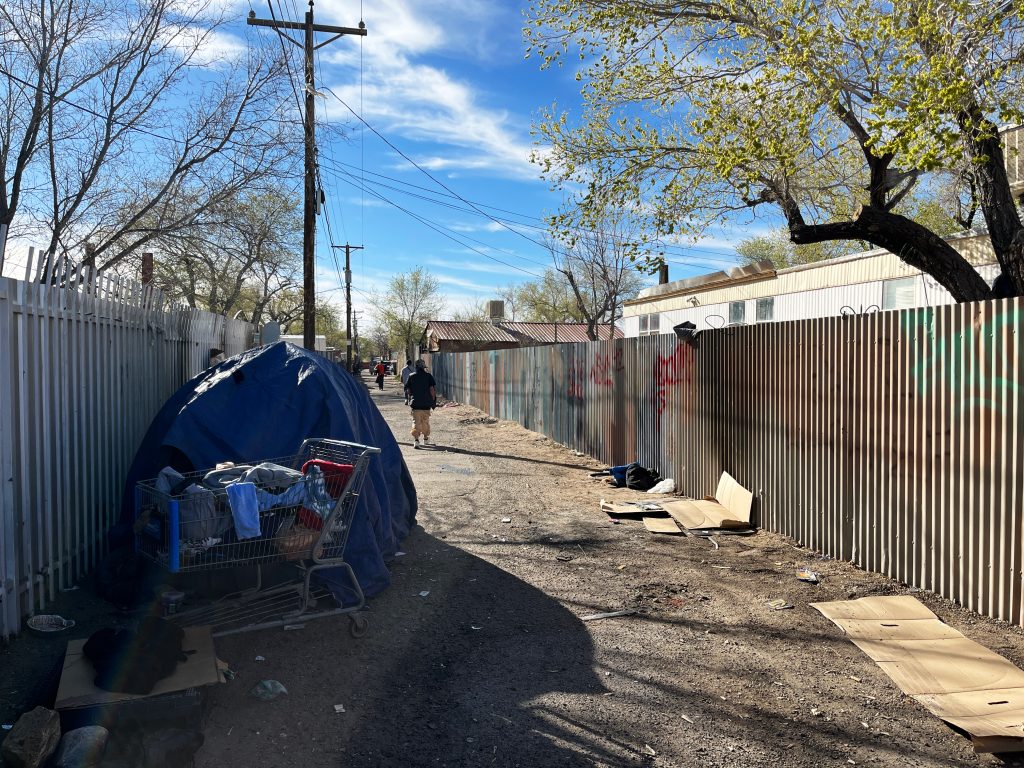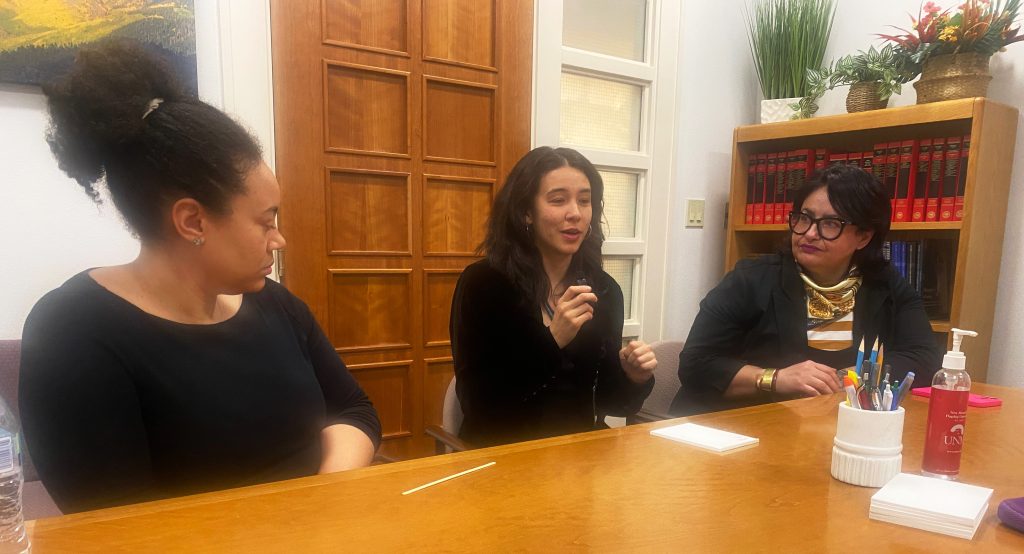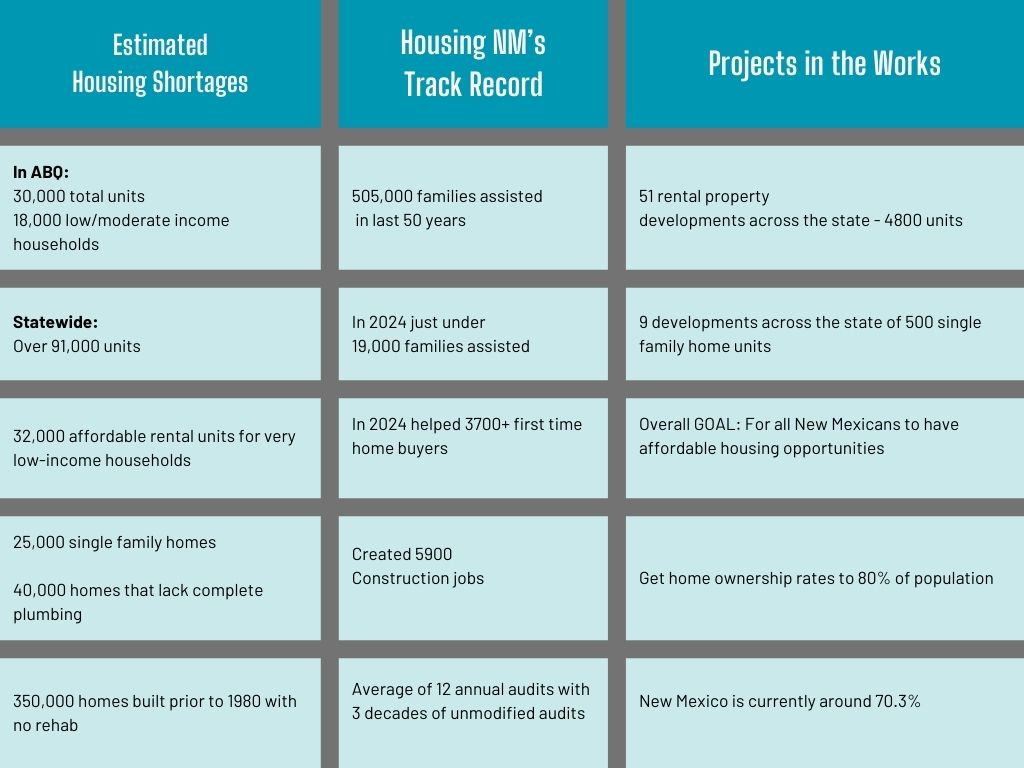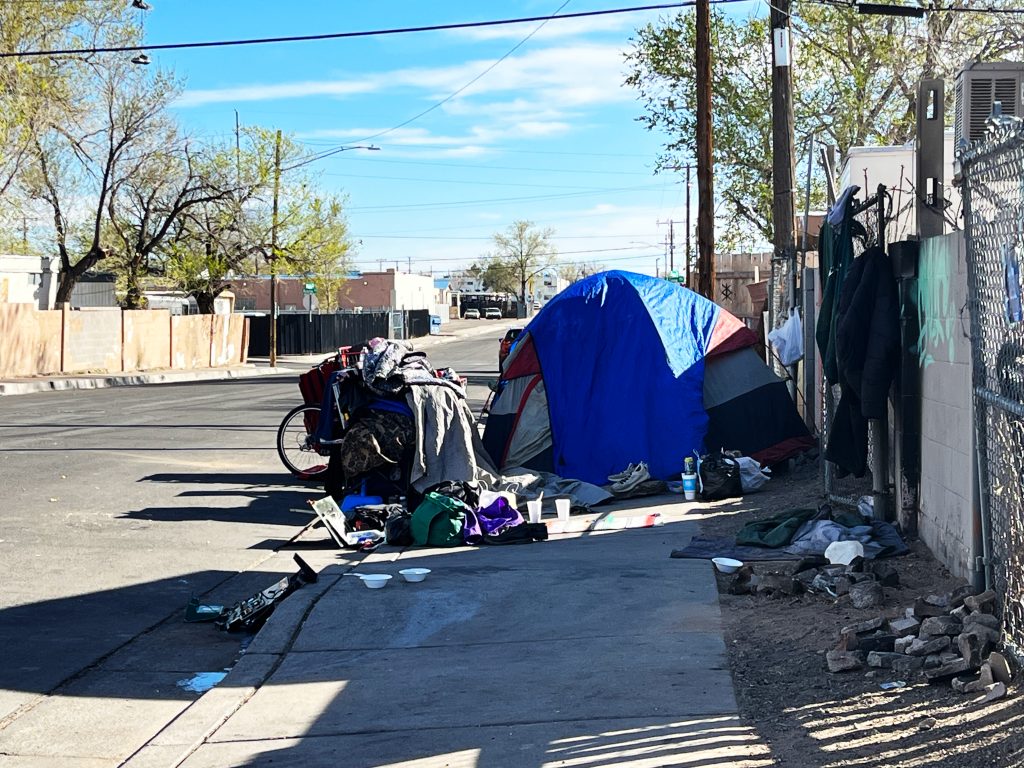Unprecedented problems call for unprecedented investments

(Photo by Joey Dunn)
ALBUQUERQUE, NM — With the legislative session ending Saturday, New Mexico lawmakers are advancing several bills aimed at addressing the state’s housing shortages and homelessness crisis.
Legislators largely agree that a comprehensive approach is necessary — one that includes transitional and low-income housing, addiction and mental health support, and improved data integration. Many also stress the need for measurable goals along a clear timeline.
Coordinating Capital Outlay for Housing Initiatives
Daymon Ely, an attorney and former senator, is advocating for better coordination between Albuquerque and the state in implementing solutions through capital outlay funding.
“The whole point is, do everything at once. That’s the only way we’re going to solve this,” Ely said.
He emphasized that for initiatives to roll out together, capital outlay requests need to be a concerted effort to mitigate the housing and homelessness crises. Ely said House Speaker Javier Martínez asked him to compile a list of funding needs, resulting in an $80 million request.
Rep. Cristina Parajón (D-Albuquerque) said she and Ely secured the $80 million in the state budget for the Middle Rio Grande Housing Collaborative, a partnership between Albuquerque and Bernalillo County to finish housing projects.
“These projects, some of them are close to being done, they just need a little more from the state and for the first time, our city and county are working together on housing,” Parajón said. “The missing person at the table is the state, that is what Daymon and I have been working on here at the Roundhouse.”
The Housing Cohort’s Legislative Priorities

Three congresswomen — Rep. Angelica Rubio (D-Las Cruces), Rep. Janelle Anyanonu (D-Albuquerque) and Rep. Cristina Parajón (D-Albuquerque) — have formed a “housing cohort” to focus on legislative solutions, mainly centered on renters’ rights and homelessness prevention.
Rubio is sponsoring House Bill 339, which would amend the Human Rights Act to prohibit landlords from discriminating against tenants based on their source of income, including Social Security, housing vouchers and nonprofit assistance. The bill passed the Senate Tax, Business and Transportation Committee on a 5-4 vote, with all four Republican members opposing it.
Anyanonu is sponsoring a bill to establish a credit worthiness assistance program, aiming to help people with steady incomes but low credit scores qualify for rentals.
The program would require the tenant to attend a training program hosted by Housing New Mexico to learn about budgeting and improving their credit scores. In exchange, landlords would take on a little bit of risk and accept their application.
The program would create a $250,000 fund to cover landlords for potential defaults, up to $5,000 per tenant, reducing the risk for landlords.
“COVID really tanked a lot of people’s credit scores,” Anyanonu said. “This will help a lot of people for next to nothing.”
Rep. Anyanonu is also sponsoring HB98, which would expunge eviction records after five years.
Rep. Parajón is sponsoring a mobile home rent stabilization bill and is working across the aisle with House Minority Leader Rep. Gail Armstrong and other Republican representatives to exempt gross receipts taxes on housing construction up to a certain cost.
The GRT measure would allow sellers of properties under $500,000 to recoup up to $20,000 in construction-related expenses, making rural housing development more viable.
A Major Investment: SB 145
One of the session’s most ambitious housing bills is SB 145, sponsored by Sen. Roberto “Bobby” Gonzales (D-Taos), which would allocate $500 million to Housing New Mexico. The funds would be used for building and rehabilitating affordable housing, providing down payment assistance, funding homelessness programs and encouraging municipalities to streamline zoning for affordable developments.
The bill stipulates a “set aside” of 30% of the total appropriation ($150 million) to go toward local governments (15% rural and 15% non-rural) that request the funds for housing needs. Applicants would have to demonstrate the ability to expedite zoning processes supporting affordable housing.
The bill passed the Senate Health and Public Affairs Committee 6-3, with Republican opposition centered on concerns over financial sustainability and the percentage of out-of-state developers receiving funds.
During an interview Gonzales suggested innovative approaches, including investing in manufactured housing that could be mass-produced and transported across the state, reducing construction costs and inspection delays.
DATA from Housing New Mexico (Formerly the Mortgage Finance Committee)

Establishing a Housing Agency
Two identical bills, SB 205 and HB 448, propose the creation of an Office of Housing Planning and Production to tackle systemic issues such as rent hikes, construction costs and tribal housing shortages. This would formalize the Office of Housing that Gov. Michelle Lujan Grisham established by executive order in 2024.
Views on Encampment Sweeps

As the Albuquerque sanitation department conducts encampment sweeps, lawmakers are somewhat divided on their effectiveness.
Rubio sees the sweeps as a superficial measure. “It’s more of an aesthetics issue,” she said, arguing that removing people from encampments doesn’t address root causes.
Senator Ant Thornton (R), who is co-sponsoring a bipartisan bill to appropriate $500,000 for transitional housing for homeless veterans in rural areas, said “it is clearly not the best thing to allow these encampments to stay in place, because it impacts the local community where these encampments exist.”
Thornton said that behavioral health issues are a root cause of homelessness and that triage in the streets is necessary to identify the needs of an unhoused individual to get them specific assistance.
“Leaving people on the street is not compassionate, and I think we as a society can no longer assume that, well, these people are just wanting to live that way. I don’t think anybody wants to live that way. So, we’ve got to identify the problem and then move them in the right direction,” he said. “We cannot keep it as the status quo, something has to be done differently.”
Parajón said certain things happening, like the city relying on untrained law enforcement to handle the homelessness issues does not make sense to her and referenced a 2016 study out of UNM. The study found a person experiencing chronic homelessness costs taxpayers much more in emergency medical care and incarceration than housing programs would.
Looking Ahead
Although there is no specific legislation this session pushing for funding for homeless shelters, Rep. Anyanonu said she knows there have been several capital outlay projects dedicated to building transitional housing.
Rep. Rubio said Las Cruces representatives plan to give a portion of their capital outlay to Community of Hope, one of the city’s major entities providing shelter and services for unhoused people.
“That’s the easiest way to address a lot of the immediate issues is through the capital outlay process,” she said.
With only days left in the session, housing advocates from across the state are showing up to speak at committees in support of these measures, emphasizing the need for a coordinated effort between the state, counties, and municipalities.
“Our city and our state need to ensure that we are all in unison,” Parajón said. “That we’re all saying the same thing which is: ‘Folks, the way you end homelessness is that you put someone in a house.’”
Follow Micaela DePauli on Bluesky